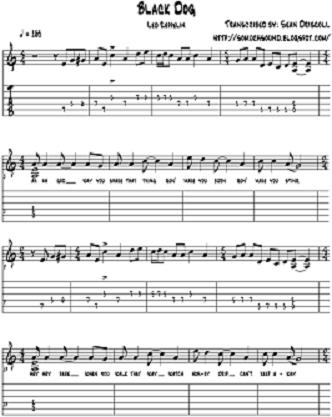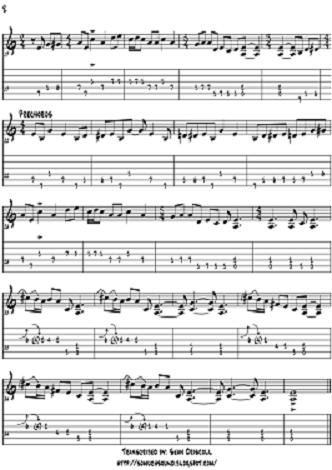- Joined
- Aug 24, 2009
- Messages
- 6,086
- Reaction score
- 41
After listening to Bub's post of guitar riffs I got to thinking about one I've just never been able to figure out. Black Dog by Led Zeppelin.
I remember first hearing it way back when and thinking "cool but odd". Every time I've heard it since I've always tried to figure it out. What the hell meter is it in, how does the drummer play in 4/4 half time while Page plays the bridge in what sounds to be mixed meter and they manage to coincide. It defies notation. If fact out of curiosity (and frustration), I actually found a notated transcription of the tune and it makes even less sense on paper than by ear.
<iframe width="560" height="315" src="https://www.youtube.com/embed/ymkjimQyHC4" allowscriptaccess="always" allowfullscreen="true" frameborder="0" loading="lazy" allowfullscreen></iframe>


I don't know for sure, but complex mixed meter and juxtaposed time signatures don't seem practical for plain rock and roll. The vocal is in straight ahead 4/4 but the big question is where the hell is beat one in any of it!?
The strangest passages are the instrumental transitions between the vocals (see transcriptions). What makes it difficult is that the time is not constant between the two. A vocal recitativ, if you will, followed by an instrumental response. Related but not connected in any way. When it finally gets going you can get a feeling for the time and how it fits. If I were to have transcribed this my version would look very different. Mostly that I would consider beat 2 of the instrumental transcription to actually be beat 1 as you listen.
I strongly suspect that this was the result of simply getting it as close to sounding "right" rather than a highly rehearsed product.
I only post this because I have listened to this song for over 30 years and have never "gotten it". I have applied whatever understanding of music I have to it for years and still come up short. Kind of like a modern "Enigma Variations".
What say youse?
I remember first hearing it way back when and thinking "cool but odd". Every time I've heard it since I've always tried to figure it out. What the hell meter is it in, how does the drummer play in 4/4 half time while Page plays the bridge in what sounds to be mixed meter and they manage to coincide. It defies notation. If fact out of curiosity (and frustration), I actually found a notated transcription of the tune and it makes even less sense on paper than by ear.
<iframe width="560" height="315" src="https://www.youtube.com/embed/ymkjimQyHC4" allowscriptaccess="always" allowfullscreen="true" frameborder="0" loading="lazy" allowfullscreen></iframe>


I don't know for sure, but complex mixed meter and juxtaposed time signatures don't seem practical for plain rock and roll. The vocal is in straight ahead 4/4 but the big question is where the hell is beat one in any of it!?
The strangest passages are the instrumental transitions between the vocals (see transcriptions). What makes it difficult is that the time is not constant between the two. A vocal recitativ, if you will, followed by an instrumental response. Related but not connected in any way. When it finally gets going you can get a feeling for the time and how it fits. If I were to have transcribed this my version would look very different. Mostly that I would consider beat 2 of the instrumental transcription to actually be beat 1 as you listen.
I strongly suspect that this was the result of simply getting it as close to sounding "right" rather than a highly rehearsed product.
I only post this because I have listened to this song for over 30 years and have never "gotten it". I have applied whatever understanding of music I have to it for years and still come up short. Kind of like a modern "Enigma Variations".
What say youse?

![[3-Size Set] Copper Pipe Cleaner for Drill, Clean 1/2, 3/4, 1-in Copper Pipes & Tubes for Soldering, 3 Tube Cleaning Brushes, Model InerLok050, 075, 100, w/ Stainless-Steel Wire Bristles & 1/4” Shank](https://m.media-amazon.com/images/I/41QVxunlqML._SL500_.jpg)




















